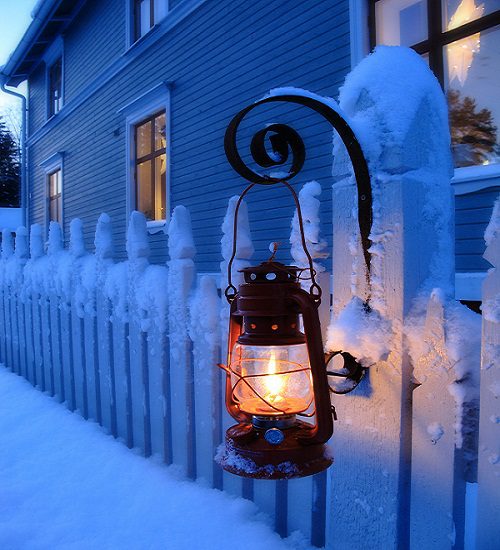Address Damage Before Winter
If your wooden fence is showing signs of rot due to summer rainfall, this is something to address before the weather turns cold and dark. After all, winter is coming. Check that your fence posts are structurally sound and that none of your boards are loose or damaged. If your only problem is one missing or damaged board, you may be able to repair the fence. A rusty latch on your gate may also need replacement, which is a problem you might encounter with either wood or vinyl. However, if you see any signs of rot, this is a good reason to tear down that old fence and put up a new one.
Signs of rot include:
- Boards are caving in
- Posts are loose and wobbly
- Gate sags and won’t close properly
You need to check for existing damage, and you also need to be sure that your fence is ready to handle the threat of snow. In addition to the moisture of snow, which can cause damage to wooden fences especially, you need to consider whether your fence can take the weight of snow. In a heavy snowfall, vinyl fences are usually sturdy because they do not rot in the first place and are less likely to warp. Aluminum fences also withstand snow well.
Protecting Your Fence from Moisture
Waterproofing a wood fence
If your wood fence isn’t showing signs of rot, then it’s likely to last another season. However, you should make sure that it has been waterproofed and will not be at risk for rot in the future. Vinyl fences are already waterproof. To check that your wood fence has been properly waterproofed, you can perform a “splash test” by splashing water onto the fence. If it beads up, you’re good to go. However, if the water gets absorbed and darkens the wood, you will need to apply a layer of sealant or waterproof stain. Make sure you’re using a high-quality brand; if you skimp on the coating, you may end up having to repair or repaint your fence, and the cost will be much greater in the long term.
Keeping leaves and snow away from your fence
Raking leaves is one of the first chores that comes to mind when thinking of fall yardwork. Make sure you have a place to rake leaves that is not against your fence. When it rains, leaves collect moisture, which can mean trouble for your fence, especially if it’s made of wood. Vinyl fences will not rot from water damage the way wood fences may. However, algae is still more likely to grow on a vinyl fence that gets wet, which is particularly noticeable if your fence is white or light-colored. Therefore, you don’t want to create piles of leaves right next to your fence, where over time they may also get wedged between fence boards.


